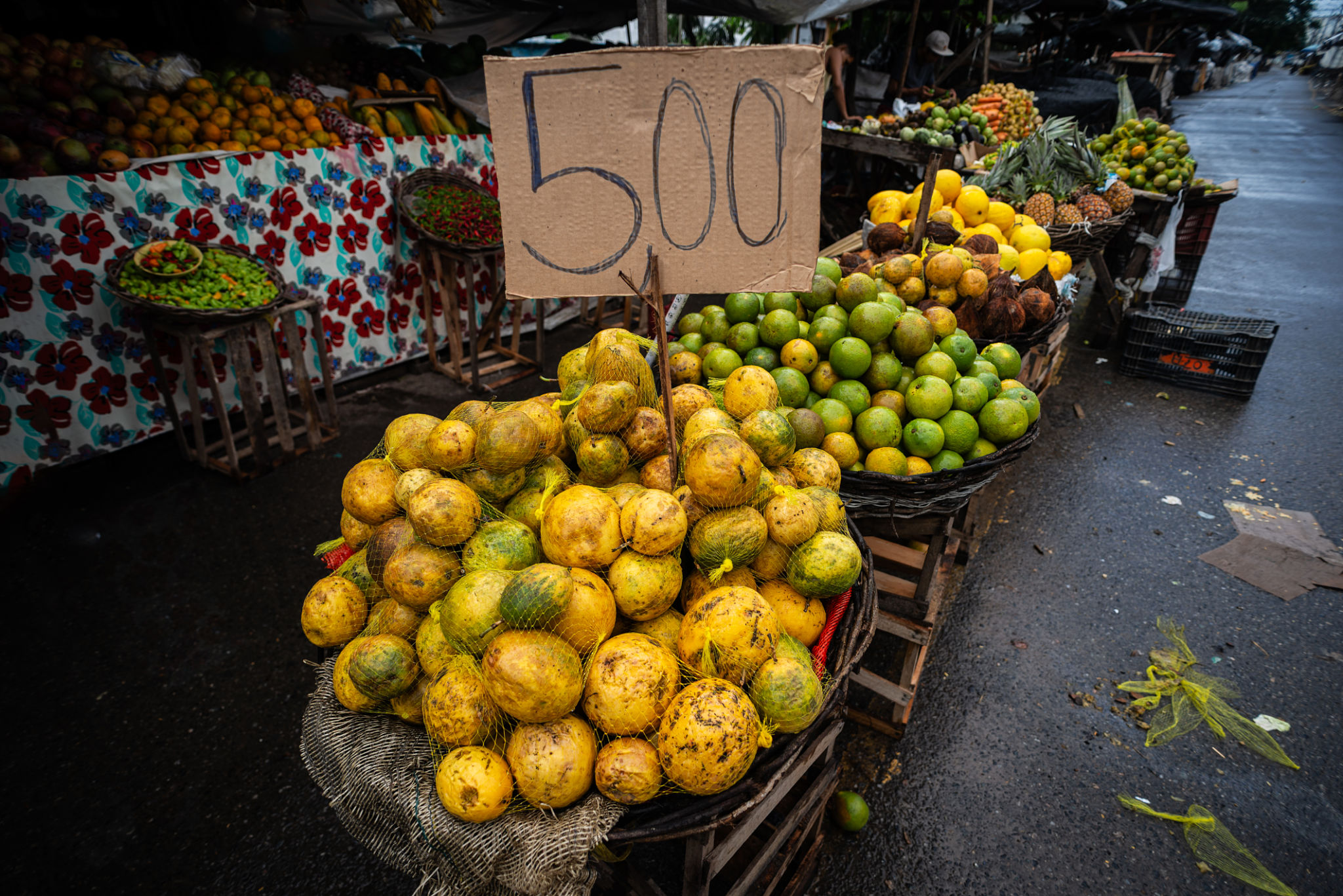Good Market Opportunity for Digital Health in Brazil
JH
Brazil has emerged as one of the most promising frontiers for digital health companies. With its massive population, increasing healthcare needs, and rapid adoption of technology, Brazil offers fertile ground for innovation in telemedicine, health apps, remote monitoring, and other e-health solutions. Companies around the world – from local startups to international ventures – are eyeing Brazil as a key market. Xcellent Life, for example, is an innovative digital health & wellness company from the United States that recognizes the high potential in Brazil’s digital health landscape. This article explores why Brazil presents a great market opportunity for digital health firms and how companies like Xcellent Life are positioning themselves through strategic partnerships to succeed in this vibrant ecosystem.

Brazil’s Booming Digital Health Landscape
Brazil is the largest healthcare market in Latin America, spending nearly 9.5% of its GDP (around US$161 billion) on healthcaretrade.gov. The nation of over 213 million people faces challenges in its public health system, but these challenges create immense opportunities for digital health solutions. According to Statista data cited by Emerging Markets Today, revenue in Brazil’s digital health market is projected to reach US$3.17 billion in 2023, with the largest segment being e-health services and devices (approximately $2.12 billion of that total)emergingmarkets.today. This market includes telemedicine services, mobile health apps, online pharmacies, wearables, and other health IT offerings that are transforming healthcare delivery.
Crucially, Brazil’s digital health sector is on a fast growth trajectory. One forecast estimates the market will grow roughly 27.9% by 2024, and more recent analyses predict even greater expansion in the coming years. For instance, Grand View Research reports that Brazil’s digital health market generated about $6.3 billion in 2024 and is expected to soar to nearly $21.9 billion by 2030, a compound annual growth of over 23%. Telehealth is the leading segment and is also the fastest-growing area of digital health in Brazil. Such robust growth signals a ripe opportunity for health tech businesses to enter or expand in Brazil.
Several factors are fueling this boom:
Massive, Tech-Savvy Population: By 2026, an estimated 185 million Brazilians will be using mobile internet. This widespread connectivity means a huge user base ready to adopt digital health apps and telemedicine. Brazil’s population is youthful and highly engaged with technology, providing a receptive market for innovative health platforms.
Healthcare Gaps and Needs: About 72% of Brazilians rely solely on the public Unified Health System (SUS)trade.gov, which often struggles with long wait times and resource constraints. There is high demand for services to fill gaps in access and quality. Chronic diseases are on the rise, and an aging population further strains the systemtrade.gov – opening the door for digital solutions that improve preventive care, chronic disease management, and remote patient monitoring.
Government Support for Digital Health: The Brazilian government is actively encouraging healthcare digitalization. Telemedicine, for example, was temporarily authorized during the COVID-19 pandemic and was made permanently legal in 2022, legitimizing virtual care services nationwidetrade.gov. The Ministry of Health has launched a Digital Health Strategy to integrate more technology into public healthcare. In 2023 the government announced US$200 million for digitalizing primary care (such as electronic records and telehealth in clinics)trade.gov. Programs like APS Digital aim to equip thousands of clinics with telemedicine tools, and telehealth networks (e.g. Telessaúde Brasil) are connecting providers to remote communitiesemergingmarkets.today. These initiatives signal that digital health has strong institutional backing in Brazil.
Patient Acceptance Post-Pandemic: The pandemic dramatically accelerated adoption of digital health. Brazilians have grown more comfortable with online consultations, remote diagnostics, and health apps. Now, telehealth and mobile health services are widely used for everything from routine consults to specialist referralstrade.gov. This cultural shift means less friction for new digital health offerings entering the market.

Innovation and Investment in Brazilian Health Tech
Brazil’s health tech ecosystem has become one of the most dynamic in Latin America. The country is home to hundreds of health startups developing solutions in telemedicine, wellness, medical AI, and more. In fact, a study by Liga Ventures identified over 250 healthtech startups in Brazil as far back as 2018, and that number has only grown. Major funding rounds and new ventures in recent years underscore investor confidence in this sector. For example, Brazil’s own digital health companies like Dr.Consulta (a network of tech-enabled clinics) and Conexa Saúde (a telemedicine platform) have attracted significant venture capital and expanded rapidly to meet market demand. The broader Latin American health tech scene was catalyzed by COVID-19 and, despite a global startup funding slowdown, Brazil remains a regional leader – typically accounting for a large share of the top funded health tech startups in Latin America alongside Mexico.
Private sector innovation is thriving. Homegrown companies are addressing Brazil’s unique healthcare challenges with digital tools. Some noteworthy examples include:
Conexa Saúde – a leading telemedicine platform connecting patients with doctors via virtual consultations and managing online appointment scheduling and e-prescriptions.
Memed – a digital prescription startup that enables doctors to send prescriptions to patients’ smartphones and provides a comprehensive medication database.
Portal Telemedicina – a telehealth service using AI to assist in remote diagnostics (like analyzing medical images for hospitals that lack specialists on-site).
Dr.Consulta – a tech-driven clinic network offering affordable in-person and telehealth services, which has scaled to serve millions of patients.
These are just a few of the innovative companies making waves in Brazil’s health tech arenaemergingmarkets.todayemergingmarkets.today. The presence of such players indicates a healthy competitive environment and a growing customer base that is becoming accustomed to digital health services.
Moreover, Brazil’s startup ecosystem benefits from accelerators, venture builders, and corporate innovation programs that support health tech. All of this bodes well for new entrants: there is a knowledge base to tap into and a market that is already validating digital health business models.
Not only local startups, but also international digital health companies see Brazil as a high-potential market. Many are exploring partnerships or regional offices to get established. For foreign companies, Brazil can serve as a gateway to the rest of Latin America’s healthcare market, given its size and influence. Of course, entering Brazil comes with challenges – navigating regulations, language barriers, and localizing to Brazilian culture – but programs now exist to help overseas startups soft-land and succeed (more on that below). The key takeaway is that Brazil’s combination of unmet medical needs, supportive policy, and consumer openness makes it an exciting growth opportunity for health tech innovators.
Xcellent Life: Positioned to Succeed through Partnerships
One company that exemplifies leveraging Brazil’s opportunity is Xcellent Life. Xcellent Life is a U.S.-based digital health and wellness platform that uses AI-driven analytics to provide real-time health insights and proactive wellness monitoring. The platform helps individuals and organizations improve health outcomes by tracking key health indicators, offering personalized coaching, and enabling remote patient monitoring. Given Brazil’s scale and healthcare gaps, Xcellent Life’s solutions – which can empower users to manage wellness and catch potential health issues early – are a natural fit for the Brazilian market.
To effectively enter Brazil, Xcellent Life has strategically partnered with local experts. In 2024, Xcellent Life was pre-approved for FCJ Group’s Softlanding Program in Brazil, a major step in positioning the company for success. FCJ Group is a renowned Brazilian venture builder and innovation hub that specializes in helping international startups establish themselves in Brazil. Following an assessment of Xcellent Life’s business, the FCJ internationalization team recognized a “high potential for market adaptation, growth, and scalability in the Brazilian ecosystem” in Xcellent Life’s offerings (as noted in the acceptance letter received by Xcellent Life’s CEO). This led to an invitation for Xcellent Life to join the Softlanding Program.
Through this partnership, Xcellent Life gains a host of advantages. FCJ Group provides hands-on support with the localization process – from navigating Brazil’s healthcare regulations and data protection laws, to adapting the product for Portuguese language and local medical standards. FCJ’s Softlanding team also aids in cultural and commercial adaptation, ensuring that Xcellent Life’s approach resonates with Brazilian customers and healthcare providers. Just as importantly, FCJ opens doors through its robust network of corporate partners. The FCJ innovation ecosystem includes large Brazilian corporations such as Algar Telecom (a major telecom operator), Drogal (a pharmacy chain), Grupo Leonora, Grupo Woli, Farmácias Indiana, Andrade Gutierrez, and many other strategic players in sectors like healthcare, pharmaceuticals, and technology. These partners – already embedded in FCJ’s network – represent potential clients, distributors, or collaborators for Xcellent Life as it enters Brazil. Being part of this network streamlines access to key industry contacts, accelerates networking, and expands business and funding opportunities for Xcellent Life in-country.

By having a local partner in FCJ Group, Xcellent Life significantly de-risks its market entry. The Softlanding Program offers a “one-stop” solution: assisting with legal entity setup, import/export compliance, connections to investors, and even talent recruitment in Brazil. This allows Xcellent Life to focus on tailoring its digital health platform to Brazilian users and scaling up operations, rather than getting bogged down by bureaucracy. It’s a prime example of how forming the right partnerships can greatly enhance a digital health company’s prospects in a new market. In the words of FCJ’s team, they are committed to “building a strong and strategic path for international expansion” for Xcellent Life, and are proceeding with formalizing Xcellent Life’s participation in the program and kicking off the localization of its solution for Brazil. With such support, Xcellent Life is poised to bring its cutting-edge health analytics and wellness solutions to millions of Brazilians, improving health outcomes and capitalizing on a tremendous market opportunity.
Conclusion
Brazil offers a good market opportunity for digital health companies due to its scale, need, and progressive shift towards tech-enabled healthcare. The country’s large population and healthcare spending underscore the demand, while recent trends – from permanent telemedicine laws to government digital health investments – create a favorable environment for innovation. Both domestic and international health tech players are finding receptive users in Brazil, whether it’s through telehealth services reaching remote areas or AI wellness apps helping manage chronic conditions. Challenges like regulatory complexity can be navigated with the help of local partners and programs, as seen in Xcellent Life’s partnership with FCJ Group’s Softlanding Program.
For digital health entrepreneurs and companies worldwide, Brazil is an attractive frontier not just for its immediate market size but also as a springboard into Latin America. The key to success will be understanding local healthcare dynamics and forging strategic partnerships to adapt solutions for the Brazilian context. Those who do so – delivering quality, culturally-attuned digital health services – stand to benefit immensely from Brazil’s growing demand for healthcare innovation. As Xcellent Life’s example shows, with the right preparation and alliances, a digital health company can indeed thrive in Brazil, improving lives while tapping into one of the world’s most exciting emerging markets for health technology.
Sources
Emerging Markets Today – “Digital Healthcare in Brazil: Predicted Growth and Key Challenges” (May 12, 2023).
(Overview of Brazil’s digital health market size and segments, government digital transformation efforts, and examples of digital health initiatives.) – Link: https://emergingmarkets.today/digital-healthcare-in-brazil-predicted-growth-and-key-challenges-2023/
Grand View Research – “Brazil Digital Health Market Outlook, 2024-2030” (2025).
(Market report highlighting Brazil’s digital health market value in 2024 at $6.34B and projected value of $21.9B by 2030, with a 23.2% CAGR, plus mobile internet user statistics.) – Link: https://www.grandviewresearch.com/horizon/outlook/digital-health-market/brazil
International Trade Administration (U.S.) – “Brazil – Healthcare (Country Commercial Guide)” (Dec 4, 2023).
(Detailed overview of Brazil’s healthcare sector, including spending as 9.47% of GDP (~$161B), the mix of public vs private healthcare usage, and government initiatives like telehealth legalization and digital strategy.) – Link: https://www.trade.gov/country-commercial-guides/brazil-healthcare
TechCrunch – “Brazil’s healthtech sector is new hot spot” (Oct 9, 2018).
(Article describing the rise of health tech startups in Brazil, noting 250+ startups identified by Liga Ventures, and discussing drivers such as inequities in access leading to innovation in telemedicine, clinics, etc.) – Link: https://techcrunch.com/2018/10/09/brazils-healthtech-sector-is-new-hot-spot/
